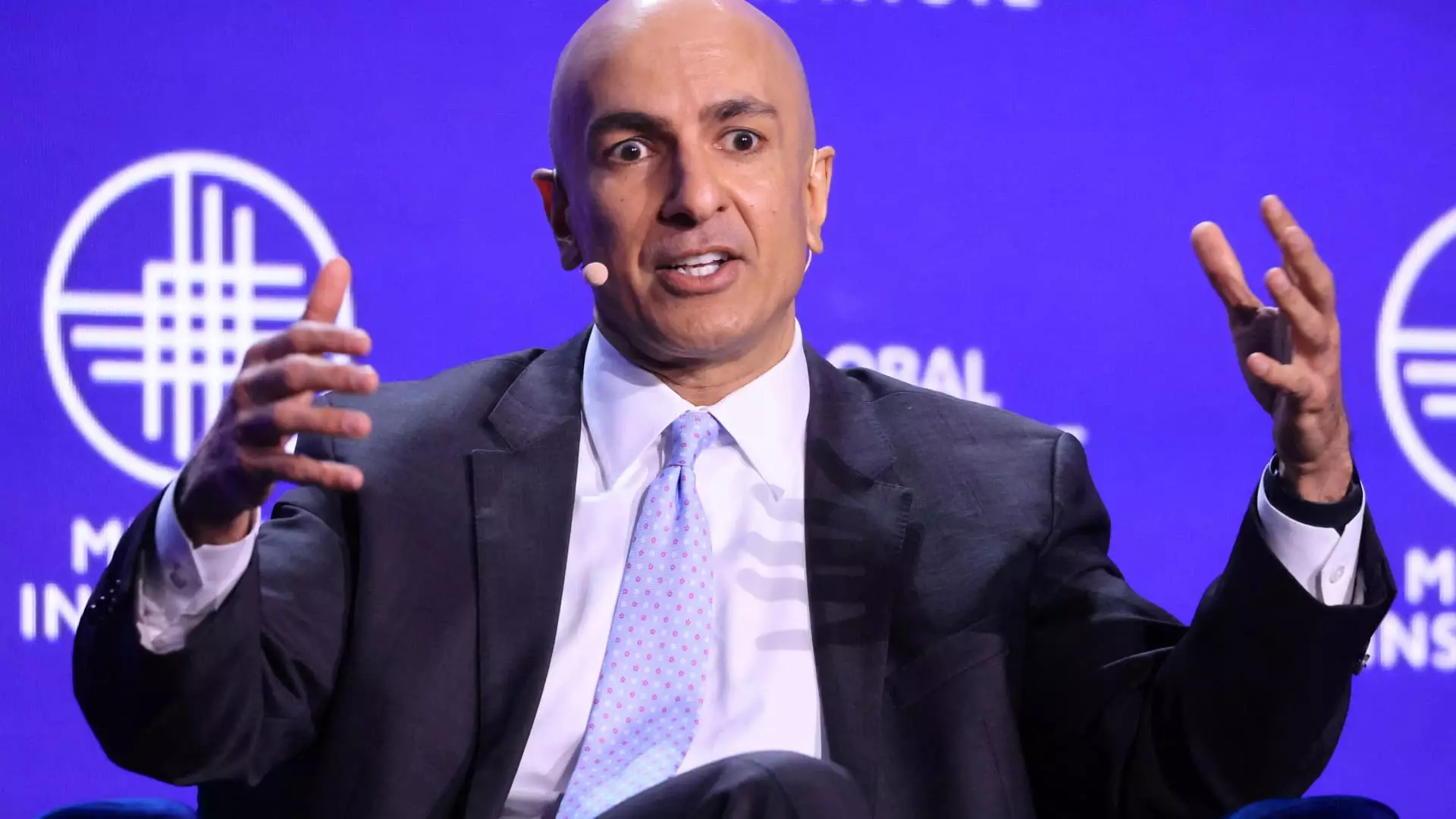In a recent discussion on CBS’ “Face the Nation,” Minneapolis Federal Reserve President Neel Kashkari articulated significant concerns regarding the proposed tariff strategies of President-elect Donald Trump. Specifically, Kashkari highlighted that while one-time tariffs might not necessarily influence long-term inflation, the repercussions could shift dramatically if other nations retaliate. His observations are particularly pertinent in the context of the prior trade war initiated during Trump’s first term, notably against China. The escalating cycle of imposing tariffs could inadvertently trigger a series of countermeasures from trading partners, leading to a volatile and unpredictable economic landscape.
Kashkari’s caution should be taken seriously, as history demonstrates that trade wars can have multifaceted and prolonged effects on both domestic and global economies. The principle of “tit for tat” underscores a dangerous trajectory wherein initial tariffs invite backlash, resulting in a situation where pricing pressures and inflation can spiral out of control. Therefore, the prospects of an escalating trade conflict stand as a critical risk factor for the economy, especially given the fragility of recovery from past inflationary challenges.
As Trump considers universal tariffs, particularly aimed at China with a steep 60% rate, there remains a prevailing skepticism among economists, Wall Street analysts, and industry leaders regarding the inflationary fallout from such an aggressive approach. With inflation having recently begun to stabilize after significant peaks caused by pandemic-related disruptions, imposing sweeping tariffs could derail economic recovery. Kashkari emphasized the progress made in reducing inflation but cautioned against proclaiming success too early; vigilance and ongoing efforts are essential for sustainable economic stability.
The Federal Reserve’s recent actions, including two consecutive interest rate cuts, reflect a responsive strategy aimed at achieving the central bank’s inflation target of 2%. Kashkari indicated the likelihood of another interest rate cut in December, contingent on incoming economic data. Such measures highlight the Fed’s commitment to adapting its monetary policy in response to evolving market conditions.
The conversation surrounding Trump’s influence on Federal Reserve policies has raised eyebrows, especially as figures like Elon Musk express their desire for direct input in monetary decisions. However, Kashkari strongly defended the Fed’s independence, asserting that the central bank’s primary focus remains on the U.S. economy rather than succumbing to political pressures. This delineation is crucial; the Fed’s autonomous stance is a cornerstone that allows it to navigate monetary policy free from partisan considerations, aiming for economic health rather than political gains.
Kashkari’s insights serve as a crucial reminder of the delicate balance policymakers must maintain. While protecting domestic economic interests through tariffs may seem appealing in the short term, the long-term repercussions—particularly those associated with retaliatory actions and inflationary pressures—pose substantial risks. As we move forward, it will be essential for leaders to weigh these factors carefully to ensure a stable economic future.

